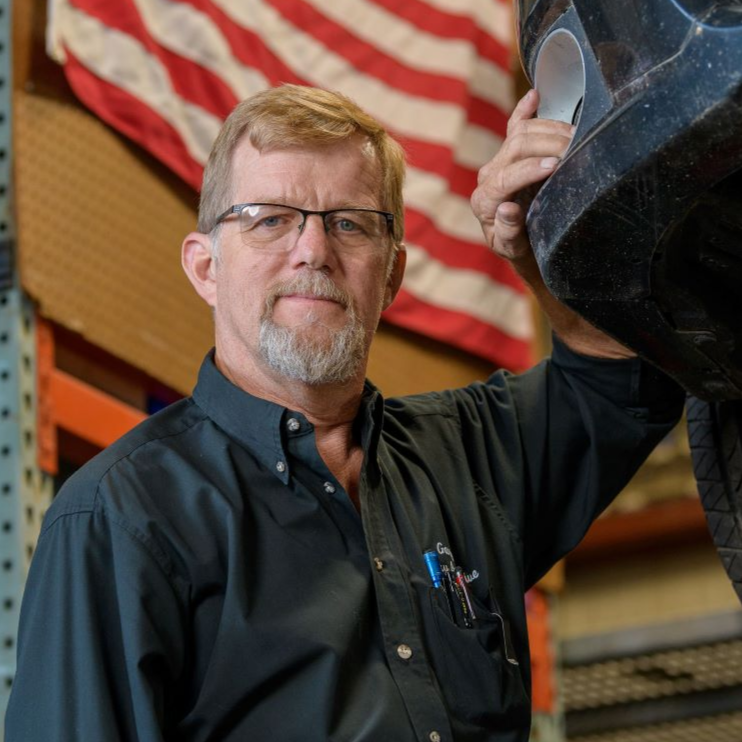Wondering what does an Automotive Technician do?
Everyone knows what an automotive technician does right? Just in case you need to know, here is a typical job description for automotive repair technicians:
- Identify mechanical problems, often using the computerized diagnostic equipment.
- Test parts and systems to ensure that they are working properly.
- Follow checklists to ensure that all critical parts are examined.
- Perform basic care and maintenance, including changing oil, tune-ups, checking fluid levels, and rotating tires.
- Repair or replace worn parts, such as brake pads and wheel bearings.
- Disassemble and reassemble vehicle parts, such as transmissions and engines.
- Use testing equipment to ensure that repairs and maintenance are effective.
- Explain to clients in layman’s terms the automotive problems and the repairs done on their vehicles.
Automotive repair technicians work on traditional mechanical components, such as engines, transmissions, and drive belts. However, they also must gain experience with a growing number of electronic systems. Brakes, transmissions, and steering systems, for example, are controlled primarily by computers and electronic components. Other integrated electronic systems, such as accident-avoidance sensors, are also becoming common. In addition, a growing number of technicians are required to work on vehicles that run on alternative fuels, such as ethanol and electricity.
Automotive repair technicians are trained to use many different tools, including computerized diagnostic tools and power tools such as pneumatic wrenches, lathes, welding torches, jacks, and hoists. They also use many common handtools, such as sockets and ratchets, wrenches, and pliers. Many service technicians invest thousands of dollars in their own personal tool collections.
Automotive technicians sometimes specialize in a particular type of automotive repair that may be subject to specific regulations or procedures. Here are a few examples:
- Auto air-conditioning technicians must follow federal and state regulations governing the handling, recycling, and disposal of refrigerants.
- Brake technicians adjust brakes, replace brake rotors and pads, and make other repairs on brake systems.
- Front-end mechanics align and balance wheels and repair steering mechanisms and suspension systems. They frequently use special alignment equipment and wheel-balancing machines.
- Transmission technicians work on gear trains, couplings, hydraulic pumps, and other parts of transmissions. Extensive knowledge of computer controls, the ability to diagnose electrical and hydraulic problems, and other specialized skills are needed to work on these complex components.
- Drivability technicians use their knowledge of engine management, emission, fuel, electrical, and ignition systems to diagnose issues that prevent engines from performing efficiently. They often use the onboard diagnostic system of a car and electronic testing equipment to find where the malfunction may be.
Looking for professional automotive technicians? Contact our ASE Certified Technicians at Gary’s Quality Automotive for more information about our automotive repair services and to schedule an appointment. Our auto shop proudly serves vehicle owners in Grand Island, NE, Wood River, NE, and Doniphan, NE.

Everyone knows what an automotive technician does right? Just in case you need to know, here is a typical job description for automotive repair technicians:
- Identify mechanical problems, often using the computerized diagnostic equipment.
- Test parts and systems to ensure that they are working properly.
- Follow checklists to ensure that all critical parts are examined.
- Perform basic care and maintenance, including changing oil, tune-ups, checking fluid levels, and rotating tires.
- Repair or replace worn parts, such as brake pads and wheel bearings.
- Disassemble and reassemble vehicle parts, such as transmissions and engines.
- Use testing equipment to ensure that repairs and maintenance are effective.
- Explain to clients in layman’s terms the automotive problems and the repairs done on their vehicles.
Automotive repair technicians work on traditional mechanical components, such as engines, transmissions, and drive belts. However, they also must gain experience with a growing number of electronic systems. Brakes, transmissions, and steering systems, for example, are controlled primarily by computers and electronic components. Other integrated electronic systems, such as accident-avoidance sensors, are also becoming common. In addition, a growing number of technicians are required to work on vehicles that run on alternative fuels, such as ethanol and electricity.
Automotive repair technicians are trained to use many different tools, including computerized diagnostic tools and power tools such as pneumatic wrenches, lathes, welding torches, jacks, and hoists. They also use many common handtools, such as sockets and ratchets, wrenches, and pliers. Many service technicians invest thousands of dollars in their own personal tool collections.
Automotive technicians sometimes specialize in a particular type of automotive repair that may be subject to specific regulations or procedures. Here are a few examples:
- Auto air-conditioning technicians must follow federal and state regulations governing the handling, recycling, and disposal of refrigerants.
- Brake technicians adjust brakes, replace brake rotors and pads, and make other repairs on brake systems.
- Front-end mechanics align and balance wheels and repair steering mechanisms and suspension systems. They frequently use special alignment equipment and wheel-balancing machines.
- Transmission technicians work on gear trains, couplings, hydraulic pumps, and other parts of transmissions. Extensive knowledge of computer controls, the ability to diagnose electrical and hydraulic problems, and other specialized skills are needed to work on these complex components.
- Drivability technicians use their knowledge of engine management, emission, fuel, electrical, and ignition systems to diagnose issues that prevent engines from performing efficiently. They often use the onboard diagnostic system of a car and electronic testing equipment to find where the malfunction may be.
Looking for professional automotive technicians? Contact our ASE Certified Technicians at Gary’s Quality Automotive for more information about our automotive repair services and to schedule an appointment. Our auto shop proudly serves vehicle owners in Grand Island, NE, Wood River, NE, and Doniphan, NE.


